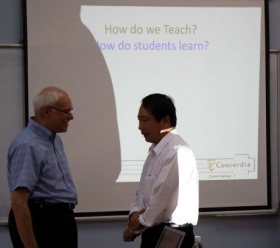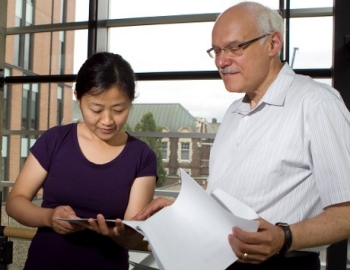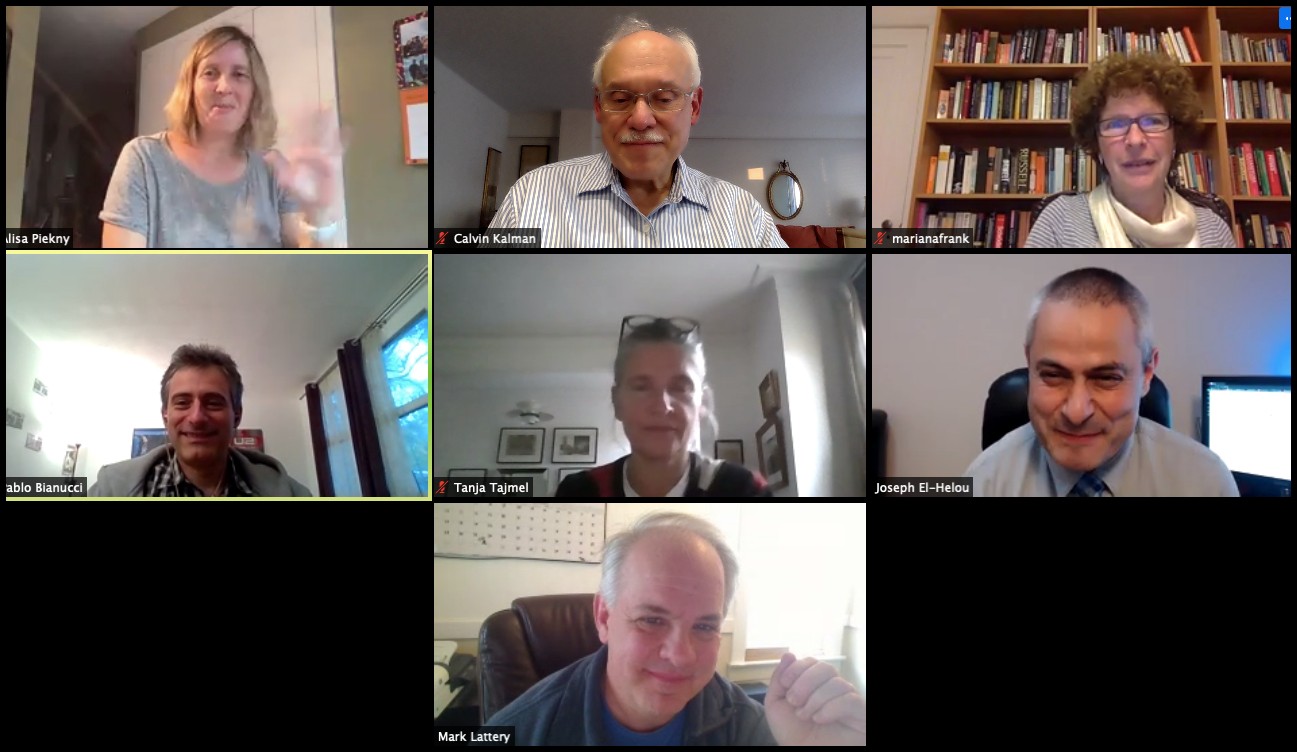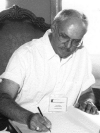In traditional lecture courses as well as courses that use interactive engagement, students are less expert-like at the end of the course than they were at the beginning (Madsen, McKagan, & Sayre, 2015). Our recent research was based on the hypothesis that students' epistemological beliefs could become more expert-like with a combination of appropriate instructional activities:
(a) pre-class reading with metacognitive reflection (Kalman, 2011) and
(b) in-class active learning that produces cognitive dissonance (Kalman et al. 2015).




 Remote Ph.D. defence of Joseph El-Helou (2020).
Remote Ph.D. defence of Joseph El-Helou (2020).

